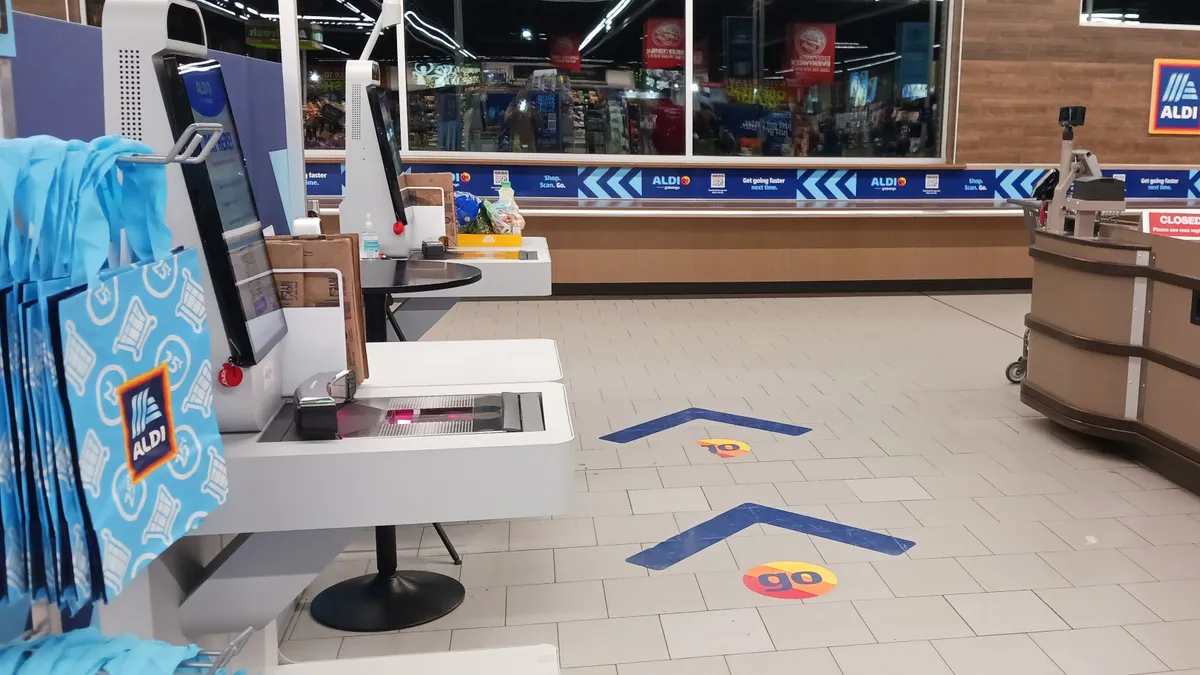The payments firm Grabango’s checkoutless payment platform — already offered at a small but growing number of stores across the U.S. — is looking to expand its footprint by securing more partnerships.
To date, Berkeley, California-based Grabango has announced 15 stores outfitted with its payment system in the U.S., but there are more already using it that have not been officially announced, Grabango CEO Will Glaser said in an interview.
Now the company is looking to build on that success: Grabango is targeting recognizable and successful brands for future partnerships, he said.
“We want partners who are good at what they do,” Glaser told Payments Dive, adding that customers are responding positively to its signature product at a handful of 7-Eleven stores.
The payments firm is one of many companies that has introduced systems intended to get customers through the store more quickly in recent years. Amazon, for example, introduced its “just walk out” at some Amazon Fresh stores in 2018, but scaled back its use of the checkout-free payment system in the spring after it struggled to control costs and to build support for the technology.
Grabango’s checkoutless payment system uses cameras to track customers and notes what they remove from the shelves. Customers using the Grabango smartphone app, or who have a credit card tied to its payment system, can either tap their phone or swipe their card as they leave the store and they are charged for the items in their basket or cart.
Most recently, the firm launched its product at 10 7-Eleven stores at the end of July. The company inked its first major partnership in 2019 with GetGo, a chain of convenience stores owned by the Giant Eagle pharmacy company. It has since announced partnerships to the grocery store chain Aldi, the oil giant Chevron, and the convenience store chain Circle K.
A Grabango spokesperson said GetGo was recently acquired by the Canadian convenience store chain Alimentation Couche-Tard, and its system is not in use at those stores as the brand goes through an ownership transition.
The company’s score with NetPromoter, a firm that tracks whether or not customers will recommend a product, is between 65% and 75%, a company spokesperson said in an email.
"The numbers have been the strongest we've ever done," Glaser said.
He also said the company’s payment system cuts down on theft, although a Grabango spokesperson said the firm has not publicly released its internal figures.
Grabango has more partnerships in the pipeline with companies that most consumers will recognize, he said.
The company is taking a different approach than payments players like Shift4, which frequently announces new partnerships with pro sports teams and major sports venues.
"We're not working on stadium or airport deals," Glaser said. "We're looking for retailers that already have a consumer base."
Grabango is seeking out big names with a history of success in retail, he said. "They are names that you would certainly know," Glaser said.
Grabango, however, may face competition from some of the very companies it seeks to work with. In recent years major retailers and supermarkets have tried their hand at smoothing the checkout process and giving customers an opportunity to skip the line.
Walmart-owned Sam’s Club, for example, recently introduced a smartphone app that allows customers to scan items as they add them to their cart. The idea behind this initiative is to let customers bypass traditional checkout lines — only requiring a Sam’s Club worker to check their digital reciept before they leave the store.











